Can You Put Preen On Top Of Mulch? (Find Out Now!)

One of the jobs that go with having a beautiful landscape or a productive vegetable garden is weeding. Weeds, it seems, will sprout, and grow almost anywhere, but most often where you don’t want them. Many gardeners consider using one of the many chemical controls. Often, where landscapes or garden plots are mulched, people wonder if you can use Preen on top of the mulch to control weeds.
Preen pre-emergent herbicides can be used on top of the existing mulch to help control weeds. Preen will stop the germination of weed seeds in the soil. Preen pre-emergent herbicides will not affect the growth of weed seeds that have already sprouted and are actively growing. Use Preen with caution as it is toxic to wildlife, fish, and honeybees.
Preen may be effective at controlling weed seeds sprouting. There are also downsides to using Preen or any other chemical pre-emergent. Other methods of controlling weed growth are available. Many of these alternate weed control methods are just as effective as using Preen or any other pre-emergent.
What is Preen?
Preen is the brand name of a line of chemical weed control products from Lebanon Seaboard Corporation. The Preen line of chemical garden products includes pre-emergent herbicides, contact herbicides, and some specialized weed prevention products.
In the case of Preen pre-emergent herbicides, the active ingredient is Trifluralin. This is a very potent herbicide designed to be used in landscapes and not on lawns. Preen should always be used according to the manufacturer’s instructions and using all the recommended safety precautions.
How Does Preen Work?
Trifluralin is a complex chemical with the formula C13H16F3N3O4. When trifluralin is applied to the soil, it inhibits the growth of plant roots by blocking mitosis in the cells. Trifluralin is especially effective at preventing seeds from germinating by blocking the production of roots.
Once the roots of the plants are established, Preen doesn’t affect the growth of roots or the plant. This allows Preen to be used on bare or mulched soil around established landscape plants without harm.
Is Preen Dangerous?
Under some circumstances, Preen can be dangerous for humans as well as other organisms in nature. Preen can be toxic to aquatic life such as fish, shrimp, shellfish, and amphibians such as frogs. Preen has been banned in Europe over concerns of runoff contamination harming wildlife.
The manufacturer of Preen states on the product label that Preen should not be used where runoff can enter waterways. The instructions specifically advise against using Preen near storm drains, driveway drains, ponds, other waterways.
In addition, the Preen label advises users to wear skin protection, eye protection, gloves, and a respirator when applying Preen. Preen is known to be an irritant to the skin, the respiratory system, and the eyes. If you begin to suffer skin irritation, eye irritation, or breathing problems when using Preen, you are advised to seek medical attention promptly.
How Should I Use Preen on Top of Mulch
Before applying Preen to any mulch, be sure you are familiar with the safety procedures. Wear your protective clothing, glasses, and a respirator when applying Preen to your landscape.
Be sure that no barrier was installed under your mulch. If plastic, landscape fabric, weed stop cloth, or heavy layers of paper or cardboard are present, the Preen may not work. These types of barriers may inhibit the Preen from reaching the soil where the seeds germinate.
Also, these barriers may contribute to excess water runoff from your landscape. This runoff can carry the Preen product into nearby water sources and become a danger to fish and other aquatic life.
Follow the Package Directions
The application method for Preen depends on the type of Preen product you are applying. You should read and follow the manufacturer’s instructions on how to apply Preen. This includes the amounts you apply and any post-application treatments such as watering. Don’t over-apply any chemical wee control. This leads to runoff contamination and doesn’t get you any better weed control.
When to Apply Preen
Preen can be applied almost any time weed seeds are actively germinating. The manufacturer recommends that Preen be applied in early spring to prevent the first weeds from appearing for best results.
Preen has a lifespan of about 3 months in your soil, so repeated applications through the growing season may be needed to maintain control of weeds in your garden and landscape. You should also remember that no product is 100 percent effective, and you may still see the occasional weed sprout.
Are There Alternatives to Preen?
There are many alternatives to using chemical-based herbicides such as Preen in your garden and landscape. In fact, Preen has a product that uses one of these alternatives. Preen makes a product that is based on corn gluten meal. Some studies have shown that corn gluten meal is an effective pre-emergent.
Mulching Alone Can be a Weed Deterrent
If the mulch in your garden and landscape is applied and maintained properly, you already have one of the best weed barriers available without using chemicals. A properly installed mulch barrier has other positive benefits for your soil and plants as well.
Laying down a thick layer of cardboard or newspaper on top of your soil before putting in a thick layer of mulch has several benefits, including preventing weeds. This method can even be used to prevent bermudagrass infiltration. Some gardeners have used the cardboard and mulch method to kill bermudagrass in large yard sections before planting landscape plants.
In addition to preventing weeds and grass, the cardboard or paper breaks down naturally and adds organic matter to your soil. The mulch will also decompose and bring many nutrients and minerals back to our soil. The thick layers of mulch also help to moderate soil temperatures and retain moisture in the soil. You may well find that you don’t need to water as much with a layer of cardboard and mulch over your soil
Using Preen Over Your Mulch
It is possible to use Preen on top of your landscape mulch to control weed seed germination. You should follow the manufacturer’s directions closely and take all the required precautions. Using Preen over your mulch can be effective. However, you must consider the downsides of using chemical pre-emergent and the dangers they present.

Dennis is a retired firefighter with an extensive background in construction, home improvement, and remodeling. He worked in the trades part-time while serving as an active firefighter. On his retirement, he started a remodeling and home repair business, which he ran for several years.
More by Dennis Howard



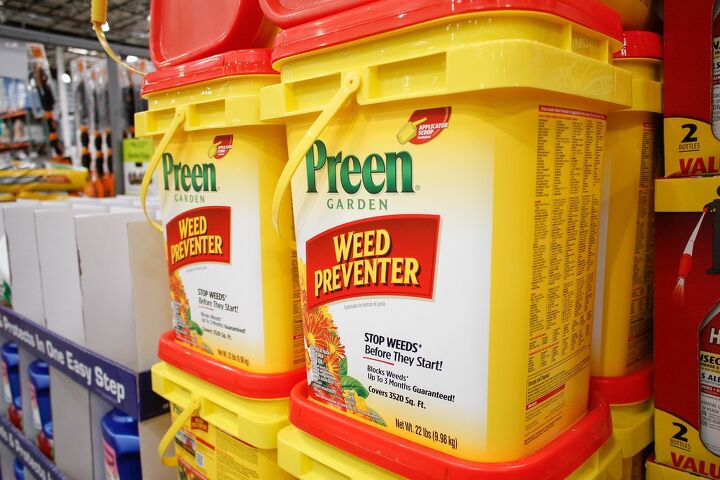










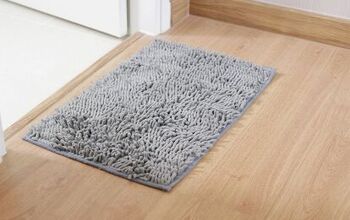
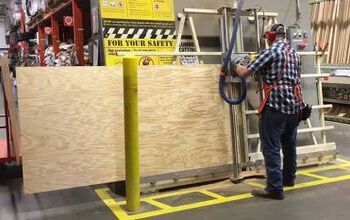









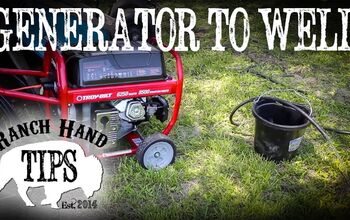
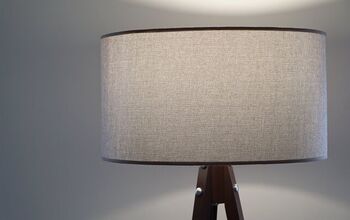
![Standard Dining Room Table Dimensions [for 4, 6, 8, 10 and 12 People]](https://cdn-fastly.upgradedhome.com/media/2023/07/31/9074335/standard-dining-room-table-dimensions-for-4-6-8-10-and-12-people.jpg?size=350x220)